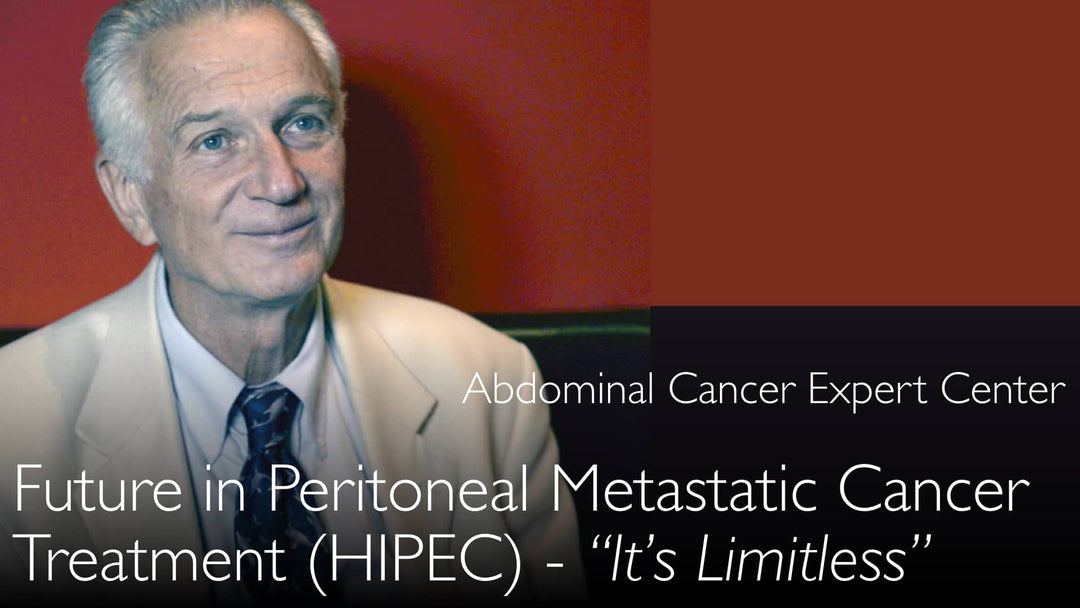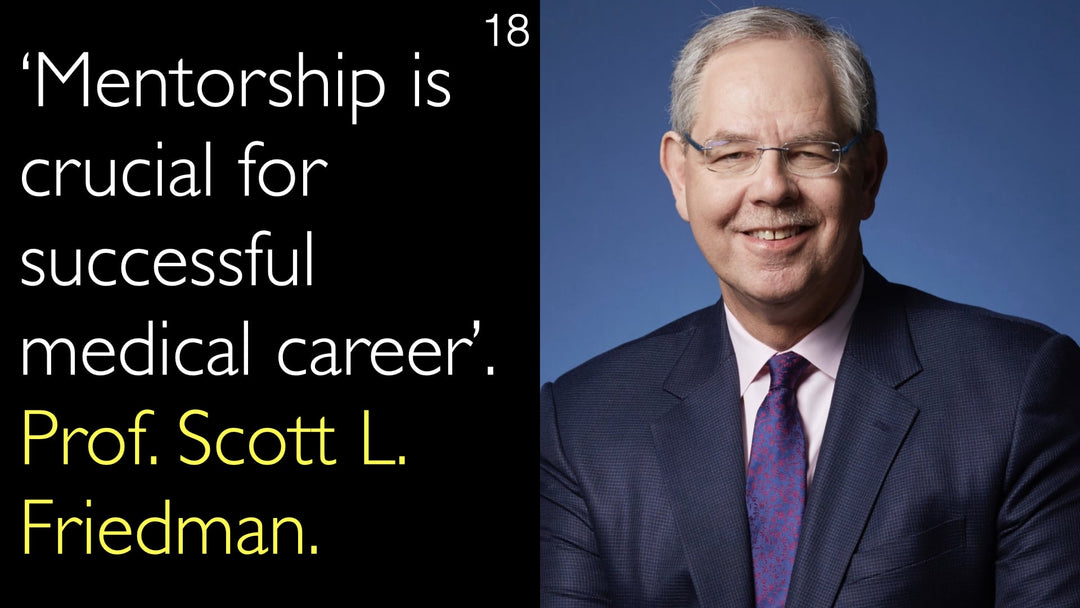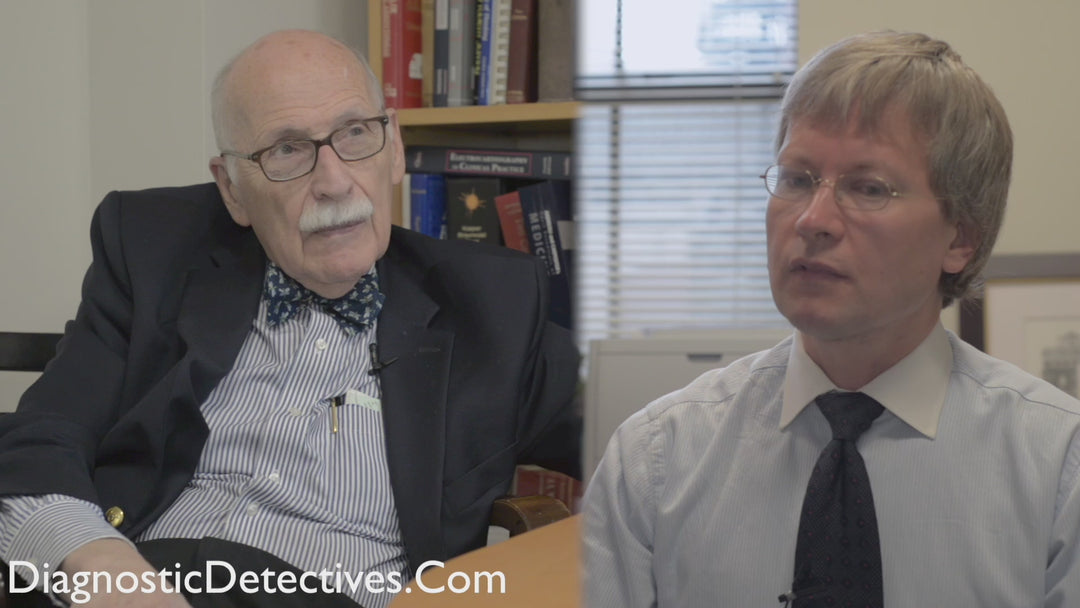Leading expert in peritoneal metastatic cancer treatment, Dr. Paul Sugarbaker, MD, explains the future of cytoreductive surgery and HIPEC. He details the global challenge of surgical education and quality control. Dr. Paul Sugarbaker, MD, discusses optimizing chemotherapy regimens for individual patients. He highlights efforts to bring this advanced treatment to developing nations. The future for treating abdominal metastases is described as limitless.
Advanced Peritoneal Metastases Treatment: Cytoreductive Surgery and HIPEC
Jump To Section
- Pioneering Peritoneal Cancer Treatment
- Optimizing Chemotherapy Regimens
- Surgical Quality and Education
- Global Challenges in Cancer Surgery
- Future Directions in Oncology
- Full Transcript
Pioneering Peritoneal Cancer Treatment
Dr. Paul Sugarbaker, MD, is a renowned gastrointestinal cancer surgeon who pioneered the treatment for peritoneal metastases. He developed the cytoreductive surgery and Hyperthermic Intraperitoneal Chemotherapy (HIPEC) procedure, now known as the Sugarbaker Procedure. This combined approach surgically removes visible tumor deposits followed by a heated chemotherapy bath directly in the abdominal cavity. Dr. Anton Titov, MD, discusses the origins of this treatment with Dr. Sugarbaker, noting its growth from a small symposium of 40 people to an international congress with nearly 1,000 attendees.
Optimizing Chemotherapy Regimens
A key future direction is optimizing the chemotherapy used with cytoreductive surgery. Dr. Paul Sugarbaker, MD, emphasizes that the optimal medications for individual patients have not yet been fully determined. This means tailoring the HIPEC drug cocktail and systemic chemotherapy to the specific cancer type, such as colon, ovarian, or gastric cancer. Precision medicine through a medical second opinion can help select the most effective treatment plan for advanced stage 4 cancer.
Surgical Quality and Education
The greatest current challenge is educating surgeons to perform high-quality cytoreductive surgery. Dr. Paul Sugarbaker, MD, states the goal is surgery that eradicates cancer down to the microscopic level. This must be achieved with a mortality rate of less than 1% and a serious complication rate below 10%. Knowledge dissemination through instructional videos and workshops is critical for spreading these best practices safely around the world.
Global Challenges in Cancer Surgery
There is a significant disparity in surgical expertise between developed and developing nations. Dr. Paul Sugov, MD, highlights the huge challenge with cancer surgery quality in the Middle East, South America, and Asia. Efforts are underway to initiate educational programs in countries like Kuwait, Saudi Arabia, Egypt, and Mexico. Dr. Paul Sugarbaker, MD, notes that his elite training at Harvard and the NIH is not universally available, making global education a primary focus.
Future Directions in Oncology
Dr. Paul Sugarbaker, MD, describes the future of peritoneal metastatic cancer treatment as limitless. The field continues to evolve with a focus on improving patient outcomes globally. Dr. Anton Titov, MD, underscores the importance of this work for patients with advanced abdominal cancers. The combination of surgical precision and optimized regional chemotherapy offers a curative potential for metastatic disease that was once considered untreatable.
Full Transcript
Dr. Anton Titov, MD: Dr. Sugarbaker, you pioneered and together with your colleagues developed the peritoneal metastatic cancer treatment procedure. It is now known as the Sugarbaker Procedure. The Sugarbaker Procedure is a cytoreductive surgery and Hyperthermic Intraperitoneal Chemotherapy (HIPEC).
Dr. Anton Titov, MD: Where do you see this peritoneal metastatic cancer treatment method going into the future? How do you see the Sugarbaker procedure developing in the next several years? You are working hard to bring cytoreductive surgery and Hyperthermic Intraperitoneal Chemotherapy (HIPEC) to more peritoneal metastatic cancer patients.
Dr. Anton Titov, MD: What is the future for peritoneal metastatic cancer treatment?
Dr. Paul Sugarbaker, MD: The future for peritoneal metastatic cancer treatment is limitless. Twenty years ago we had the first international congress on peritoneal surface oncology. It was in London at a small hospital, North Hampshire Hospital. There were about thirty or forty people at that first peritoneal cancer treatment symposium.
Dr. Paul Sugarbaker, MD: I had no idea at that time that peritoneal metastatic cancer treatment would be growing the way that it is now. Next year in Washington, DC, we will get together with about a thousand surgeons and oncologists from around the world to discuss the best peritoneal metastatic cancer treatment.
Dr. Paul Sugarbaker, MD: We will try and think through now, twenty years later, where are we going with the treatment of peritoneal metastases. We have not found out the optimal medications to use on individual patients with peritoneal cancer metastatic disease. We need to optimize the chemotherapy that goes with a cytoreductive surgery.
Dr. Anton Titov, MD: This is a good word, "optimize." But there is a huge challenge in terms of surgical technology education about cytoreductive surgery and Hyperthermic Intraperitoneal Chemotherapy (HIPEC).
Dr. Paul Sugarbaker, MD: I would say that our greatest challenge at this point in time is to educate surgeons to perform a cytoreductive surgery that is down to the microscopic level of cancer metastatic disease. Surgeons have to do cytoreductive surgery with a less than one percent mortality and with less than ten percent serious complication rate.
Dr. Paul Sugarbaker, MD: That is the number one focus of our activity at this point in time on quality of cytoreductive surgery in peritoneal metastatic cancer. We will be working on educating cancer surgeons on reducing death rate and complications rate at this congress with videos and workshops.
Dr. Paul Sugarbaker, MD: Videos and workshops allow knowledge of best practices in peritoneal metastatic cancer treatment to be safely disseminated around the globe. High quality of cytoreductive surgery is a challenge in the United States, Europe, Japan and Korea.
Dr. Paul Sugarbaker, MD: But what about the developing countries? There is a huge challenge with quality of cancer surgery in developing countries. What about cancer surgery quality with our Islamic neighbors? We are trying to get peritoneal cancer surgery education efforts going now in Kuwait and Saudi Arabia.
Dr. Paul Sugarbaker, MD: We have got a peritoneal cancer surgery conference coming up in Cairo, Egypt. But it is a huge challenge there because the level of surgical expertise is not the same as we have in the US. I was trained at Harvard and then at the National Institutes of Health. I had absolutely the best training in surgery you could ever imagine.
Dr. Paul Sugarbaker, MD: We don't have that quality of surgical training around the world. South America is a huge challenge in quality cancer surgery training. We have made some real progress in Mexico with a big effort to educate cancer surgeons.
Dr. Paul Sugarbaker, MD: But is cytoreductive surgery and Hyperthermic Intraperitoneal Chemotherapy (HIPEC) a treatment only for the United States and Europe? It is not. Cytoreductive surgery and Hyperthermic Intraperitoneal Chemotherapy (HIPEC) is a treatment that should be initiated around the globe.
Dr. Anton Titov, MD: That is a huge challenge.







